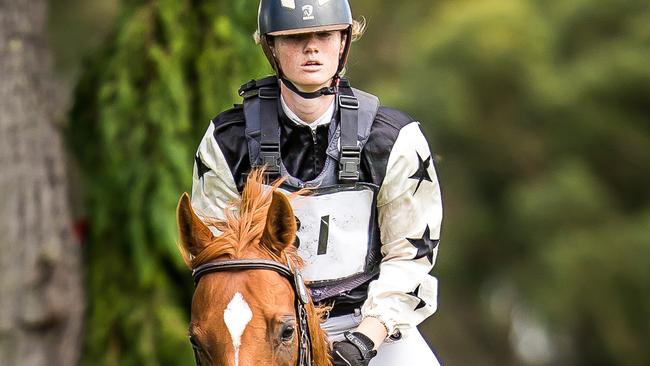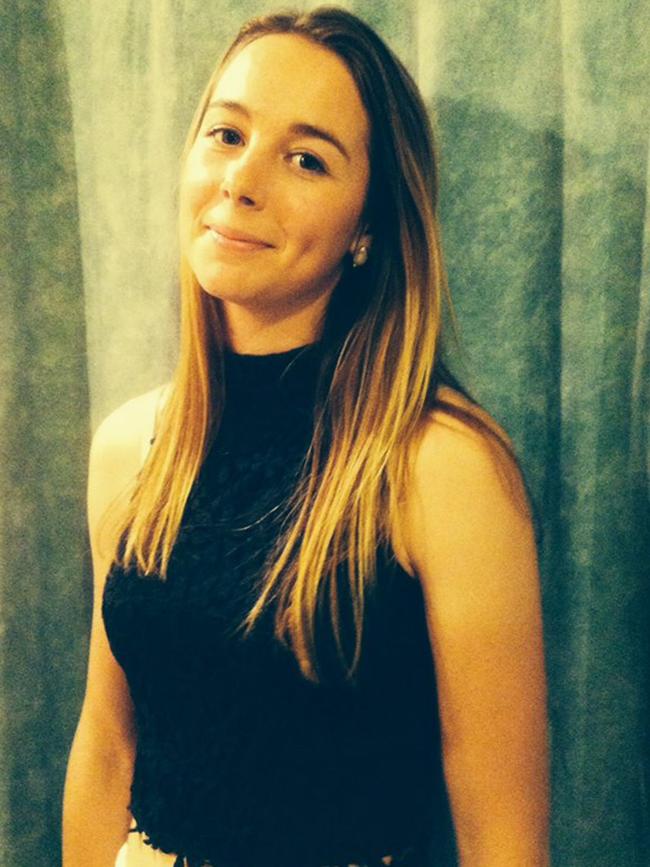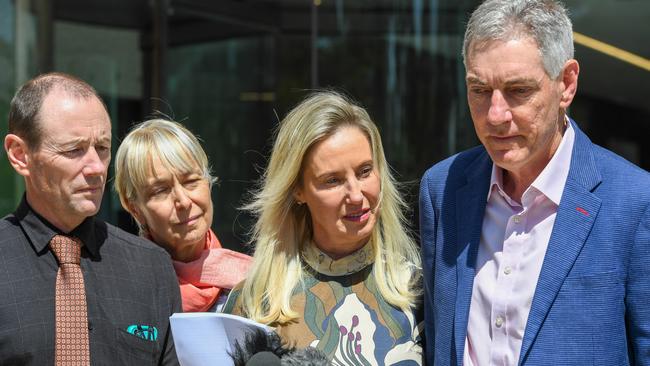Equestrian chief Alistair MacKinlay steps down amid inquests furore
Equestrian chairman lost support of the board after calling the inquests into the deaths of teenage riders ‘a distraction’.

Equestrian Australia chair Alistair MacKinlay has stepped down after losing the support of the board one day after he triggered a backlash for labelling the inquests into the high-profile deaths of teenage riders Olivia Inglis and Caitlyn Fischer a “distraction”.
Mr MacKinlay was chair for less than eight months and used the release of the national sporting body’s annual report on Wednesday to label the 13-day inquest a drain on the body’s resources.
Sports Minister Richard Colbeck said the comments were “insensitive” and “extremely disappointing” while Sport Australia chief executive, Kate Palmer, said the words used by Mr MacKinlay did not reflect the compassion felt for the families.
Caitlyn’s parents, Ailsa and Mark, told The Australian they were upset and distressed to read the comments, considering the inquest found “how far behind” Australia was in safety and risk management at the time of their daughter’s death.
“Since 30th April 2016 we have had to live with the pain of losing our beautiful daughter as well as sit through an inquest into Caitlyn’s death, that is ‘taxing’ in the worst possible way,” they said.
“We feel such comments trivialise our loss and what we have been through are inconsiderate of our pain and show disrespect for the loss of Caitlyn’s life which showed nothing but promise.”

The Australian understands the board was split over a range of issues including Equestrian Australia’s handling of sexual assault allegations regarding elite athlete Callum Buczak, who was charged with raping another rider earlier this year.
Tensions came to a head at the Annual General Meeting in Sydney on Thursday when Mr McKinlay failed to be re-elected as chair.
Ricky MacMillan, who has been a member of the board since April of this year and represented Australia at the Sydney and Athens Olympics in Dressage, is his replacement.
It is understood Mr MacKinlay’s resignation is not directly related to his comments about the inquest into the deaths of Olivia and Caitlyn, but was a result of dissatisfaction with the sporting body’s governance.
In the annual report, Mr MacKinlay wrote: “We have had the distraction of the inquest into the deaths of two of our young athletes.”
“The process has been very taxing on the resources of EA and particularly our CEO.”
“The findings that the deaths were terrible accidents has been acknowledged by EA. However, it is important to remember an inquest is held to find out what went wrong and to try and stop it happening again.”

The comments sparked outrage among the Equestrian community with Senator Colbeck telling The Australian he was “extremely disappointed by the insensitive language used by the chair.”
“The loss of two young athletes tragically highlights the need for action to ensure the safety of equestrian athletes in Australia.”
Mr MacKinlay told The Australian he was not suggesting the inquest was “unnecessary.”
“At the time EA accepted that it was a distraction from the normal activities and responded as any professional organisation should with all the necessary resources applied,” he said.
“Anything that can be done to mitigate that [risk] is to be welcomed and EA embraced that opportunity,” Mr MacKinlay said. “The reality is that is has taken resources which prevented other things being done.”
Olivia, whose surname has been synonymous with the bloodstock trade for 150 years, was 17-years-old when her horse somersaulted over a rail and crushed her as they competed at the Scone Horse Trials in the NSW Hunter Valley.
Just under seven weeks later, on April 30, Caitlyn Fischer, 19, died instantly when her horse, Ralphie, entered a rotational fall while competing in an elite competition.
In October, NSW Deputy State Coroner Derek Lee delivered a slew of over 30 recommendations to improve safety in the sport, while finding the jump Olivia fell and died at breached the guidelines set by the sport’s international body Federation Equestre Internationale.
Ms Palmer said the words used by Mr MacKinlay to describe the inquest were not appropriate.
“Their deaths are a tragedy,” Ms Palmer said. “I express my deepest sympathies to the family and friends of Olivia Inglis and Caitlyn Fischer.”
Centre Alliance Senator Rex Patrick, who has been calling for a Senate inquiry into the sport’s governance, said the remarks seemed like a “pat on the back” in the wake of the deaths and amid “persistent” claims of bullying, harassment and alleged sexual misconduct.
Equestrian Australia apologised for the remarks on Thursday, with new chair Ricky MacMillan telling The Australian the board remained steadfast in its commitment to making Australia a world leader in equestrian safety and risk mitigation.
“We absolutely supported the Coronial Inquest, and co-operated with the process fully,” chief executive Lucy Warhurst said. “The NSW Coroner’s Report was constructive and provides a clear path forward to improve safety in our sport.”
She said the new board was “getting on” with the job of improving safety in equestrian sport and advocating for the best interests of members.
Senator Colbeck said Sport Australia would continue to work with Equestrian Australia to implement the Coroner’s findings but said the national sporting body needed to take a strong leadership role “rather than being seen to be led by others.”
Mr MacKinlay’s decision to step down comes ten months after former chair Judy Fasher and two directors were ousted following a coup to unseat them.
Just 12-months-ago simmering tensions over the body’s leadership and accusations of a perceived conflict of interest came to a head at its annual general meeting in Sydney on November 21.
At the meeting, five of the six state branch chairpeople issued a vote of no confidence and called for Ms Fasher and two directors to stand down. In the following months the board was completely reconstituted.
The internal conflict was compounded after Australian Olympic Committee president John Coates issued a stark warning to the international equestrian authority that the future of the sport, which has delivered Australia 12 Olympic medals, was in crisis.



